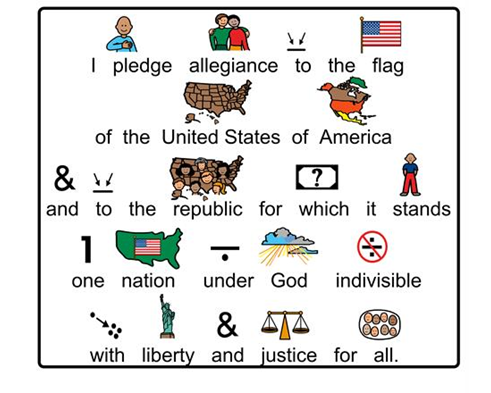“...with liberty and justice for all.” This. A turn of phrase that all who grew up going to public schools in the United States know. Words. Most recently recited to me by my 5-year-old son just three weeks after he joined the public school ranks. Visceral. My reaction to these words and all those that precede them in the US Pledge of Allegiance, a pledge that I have not taken since middle school after I refused to recite it in my high school years.
But.
Let me take a step back for moment to reflect on the pedagogy of the pledge. What is its recitation by new public schoolers entering kindergarten across the country teaching our littlest students? At a time when our country faces enormous challenges (when haven't we?), how is it that we support kindergarteners to understand that as much as they might daily declare that they live in “one nation, under God, with liberty and justice for all,” this is most certainly not the case (and let’s leave God out of this one for now). Are they old enough to understand that this is, at best, an aspirational ideal, and, at worst, a bold-faced lie? As a parent, how can I love my son for his obvious pride in memorizing the pledge just three weeks into kindergarten alongside my distrust (disgust?) for this patriotic custom that I find all kinds of disingenuous?
“You know, you don’t have to say the pledge if you don’t want to, right?”
“Why, Daddy?”
“Well, just you don’t have to if you don’t want to. Like how the football players are kneeling during the National Anthem. They’re protesting.” (We had seen news coverage and footage earlier in the day.)
“What’s protesting?”
“Well…”
In protest, I declined to recite the pledge throughout high school. For me this was to recognize that the words fell short of reality and rung hollow when struck against what I observed our government doing. A child of the 80s, I was raised in a household that taught me to question, ponder, and wonder. My father, doing Central American solidarity work in protest of US foreign policy in the region, helped me learn that the country of my birth did horrible things to people in places close and far. Thus, I concluded, why should the flag deserve my pledge? By the time I was in high school, my Sony Discman blared the righteous sounds of Rage Against the Machine in my ears. In words of Zack de la Rocha, the pledge, to me, represented “Compromise! Conformity! Assimilation! Submission! Ignorance! Hypocrisy! Brutality! The elite! All of which are American Dreams!”
More than two decades after Rage Against the Machine helped channel my anger and distrust for the world I saw and sensed around me, I am dedicated to parenting, partnering, teaching, organizing, and living with hope and love. I am still angry because, let's face it, there is more than enough to be angry about. And, while I have no intentions of tempering that anger in an effort dampen it, I also find a need to balance it with hope. As a Rhode Islander, "Hope" is my state’s motto. Is it possible to see and understand the possibility of “liberty and justice for all” as a hopeful pursuit? A pursuit, while difficult, that can be beautiful? A recent short film, In Pursuit of Liberty, raises these questions while offering a timely reminder of who we are -- as educators, as citizens, as humans and as the latest generation of Americans tasked with helping our country inch closer to fulfilling and expanding its promise and potential for everyone. And, while, I must admit that in this historical moment, I am filled with apprehension and doubt, I only need turn to my son for some solace.
When I asked my son what he thought the pledge meant, he answered, “compassion and honor.” Hmmm...I thought, we might be able to work with that. “Honoring what?” I asked. “I don’t know, toys?” he said. I smiled, there's hope yet. At his age, toys bring joy. This is a pledge I can make: one that strives for compassion and honors the joys in our lives. This pledge reminds us to love, to care, to play, to have fun, and to human be together. How can we help shape educational experiences that teach these things? How do we ensure that our communities and schools are places where every person is fully seen, recognized, loved, and celebrated? In these times, there are rays of hope from Providence to Oakland. When we listen to and honor the voices of the youngest among us, then perhaps we can really go about pursuing liberty and justice for all.


